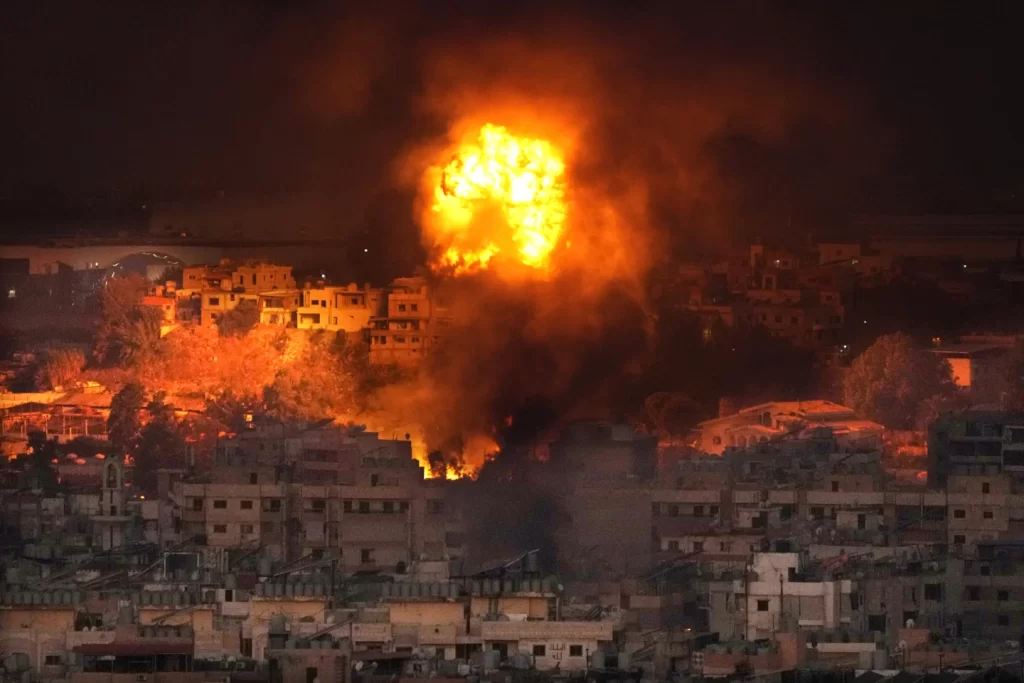Lebanon’s Hezbollah group confirmed Saturday that its leader and co-founder, Hassan Nasrallah, was killed in an Israeli airstrike in Beirut the previous day, marking a significant escalation in the ongoing conflict between Israel and the militant group.

A statement from Hezbollah said Nasrallah “has joined his fellow martyrs” and vowed to “continue the holy war against the enemy and in support of Palestine.” Nasrallah, who led Hezbollah for more than three decades, is the most powerful target eliminated by Israel in weeks of intensified fighting.
The Israeli military reported carrying out a precise airstrike on Friday targeting a meeting of Hezbollah leadership at their headquarters in Dahiyeh, south of Beirut. The Lebanese Health Ministry said six people were killed and 91 injured in the strikes, which leveled six apartment buildings. Ali Karki, commander of Hezbollah’s Southern Front, and other commanders were also killed, according to the Israeli military.
Lt. Col. Nadav Shoshani, an Israeli army spokesperson, said the airstrike was based on years of tracking Nasrallah along with “real time information.” He declined to provide details on the munitions used or civilian casualties, stating only that Israel takes measures to avoid civilian deaths whenever possible.

The Palestinian militant group Hamas issued condolences to its ally, Hezbollah, stating that “assassinations will only increase the resistance in Lebanon and Palestine in determination and resolve.”
In Beirut and other areas of Lebanon, people fired into the air to mourn Nasrallah’s death, with some protesting that he was killed because of his support for the war in Gaza.
Israel’s Chief of Staff, Lt. Gen. Herzi Halevi, indicated that more strikes were planned, saying the elimination of Nasrallah was “not the end of our toolbox.” The Israeli military announced the mobilization of additional reserve soldiers as tensions escalate with Lebanon.
Iran, Hezbollah’s main supporter, called for a “strong” response to Israel. Iraqi Prime Minister Mohammed Shia al-Sudani declared a three-day period of mourning in his country.

The killing of Nasrallah comes after nearly a year of hostilities between Israel and Hezbollah, which intensified following Hamas’s attack on Israel on October 7, 2023. The conflict has displaced tens of thousands of civilians on both sides of the border.
Orna Mizrahi, a senior researcher at the Institute for National Security Studies in Tel Aviv, noted that Nasrallah’s death could prompt less senior Hezbollah members to use stronger weapons against Israel. She added that his death might provide an opportunity for Lebanon to reduce Hezbollah’s influence in the country.
As the situation develops, both Israel and Hezbollah continue to exchange strikes. The Israeli military reported carrying out over 140 airstrikes in southern Beirut and eastern Lebanon’s Bekaa Valley on Saturday morning, while Hezbollah launched projectiles into northern and central Israel.
The Lebanese Health Ministry reports that at least 720 people have been killed in Lebanon over the past week by Israeli airstrikes.



